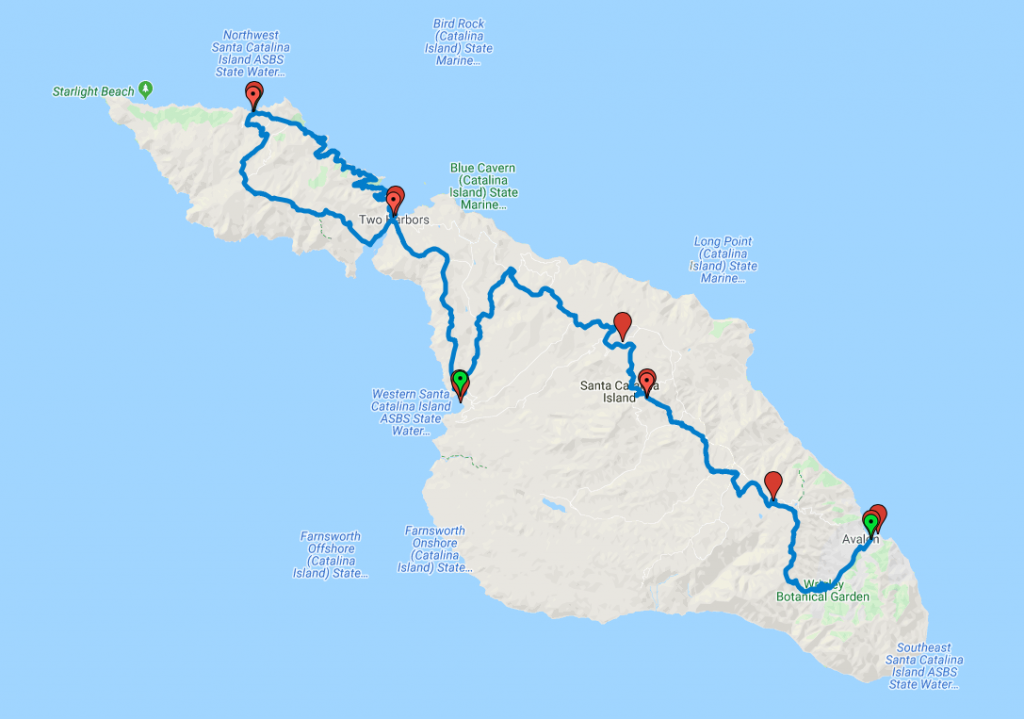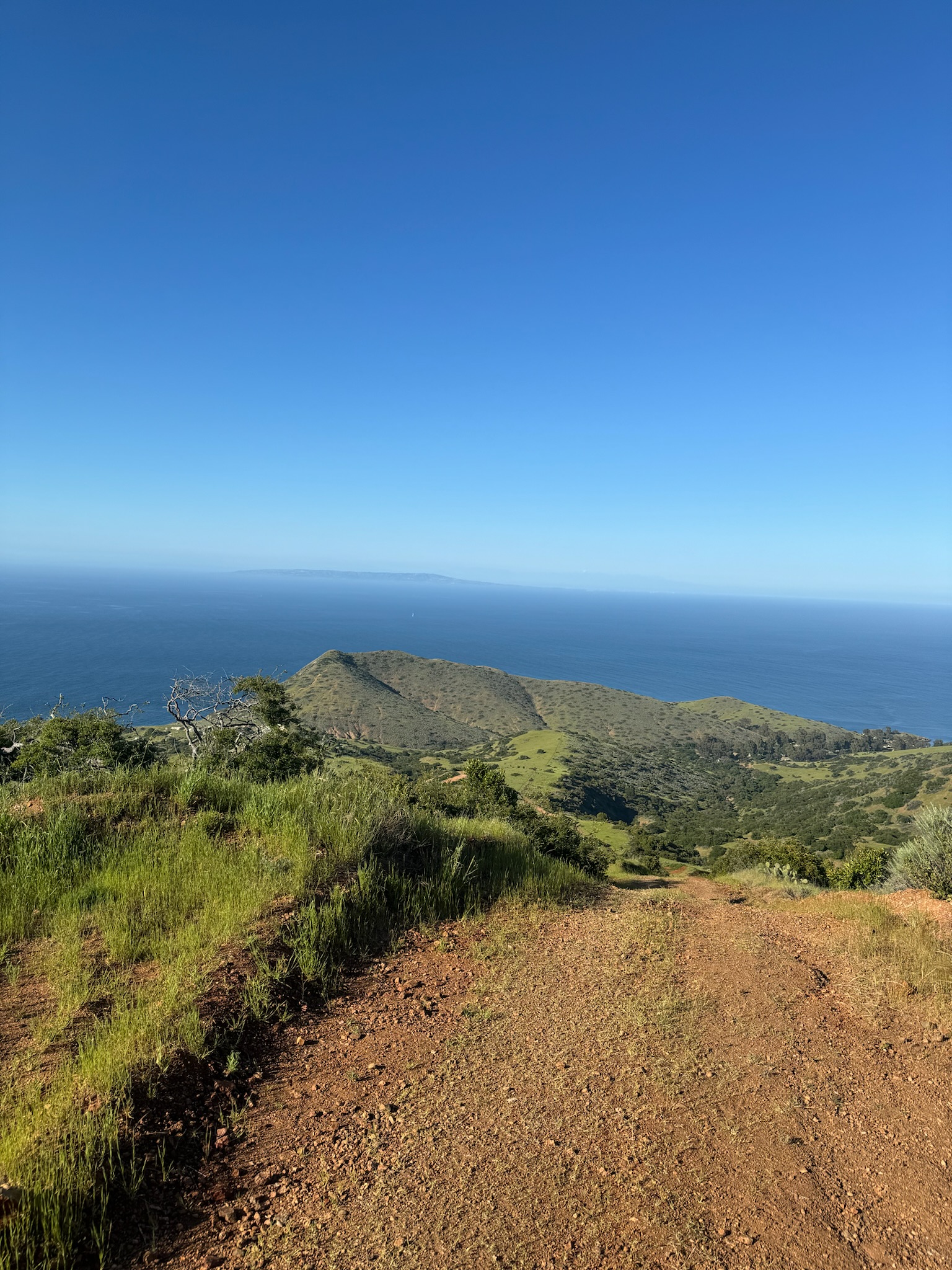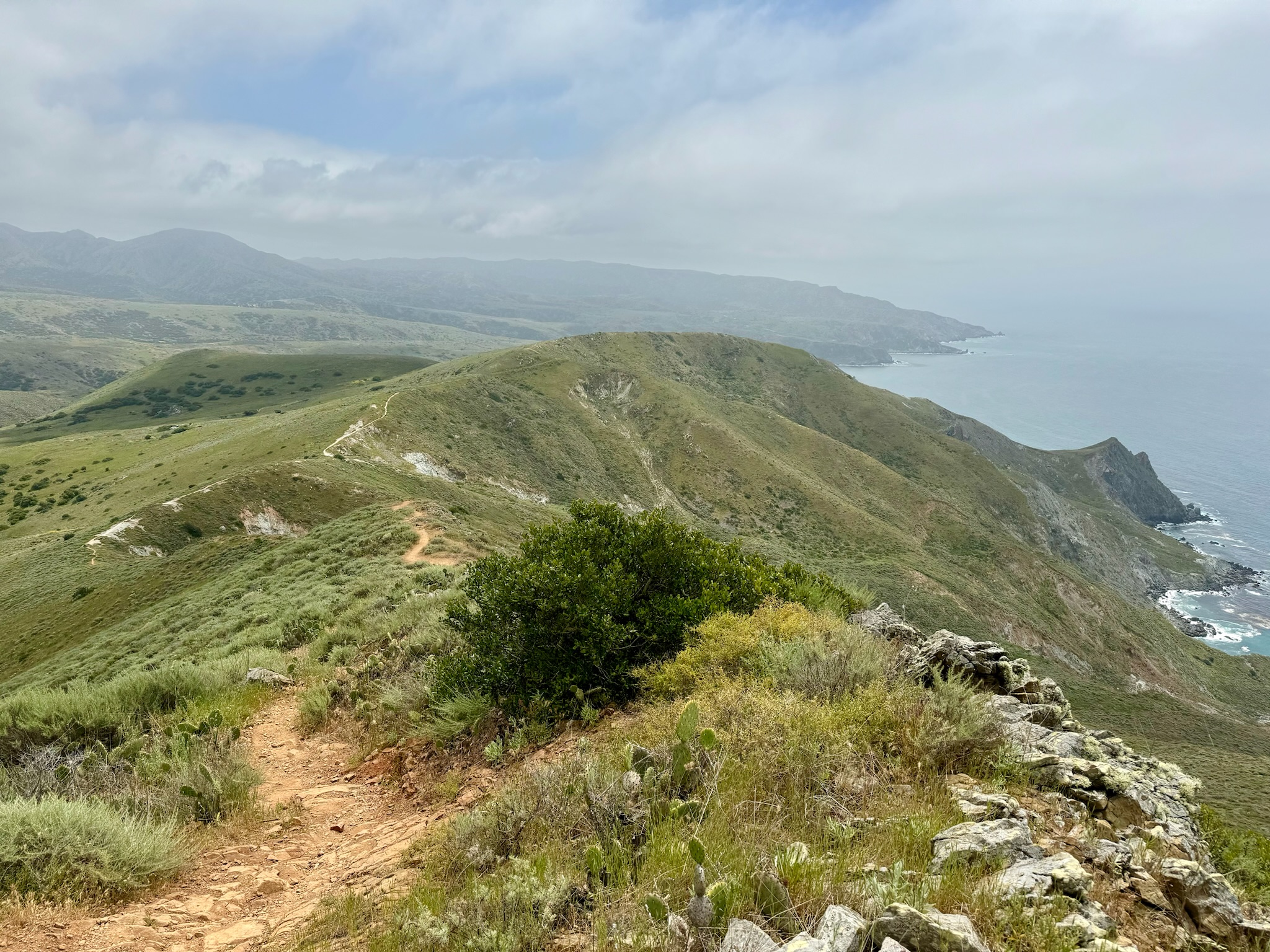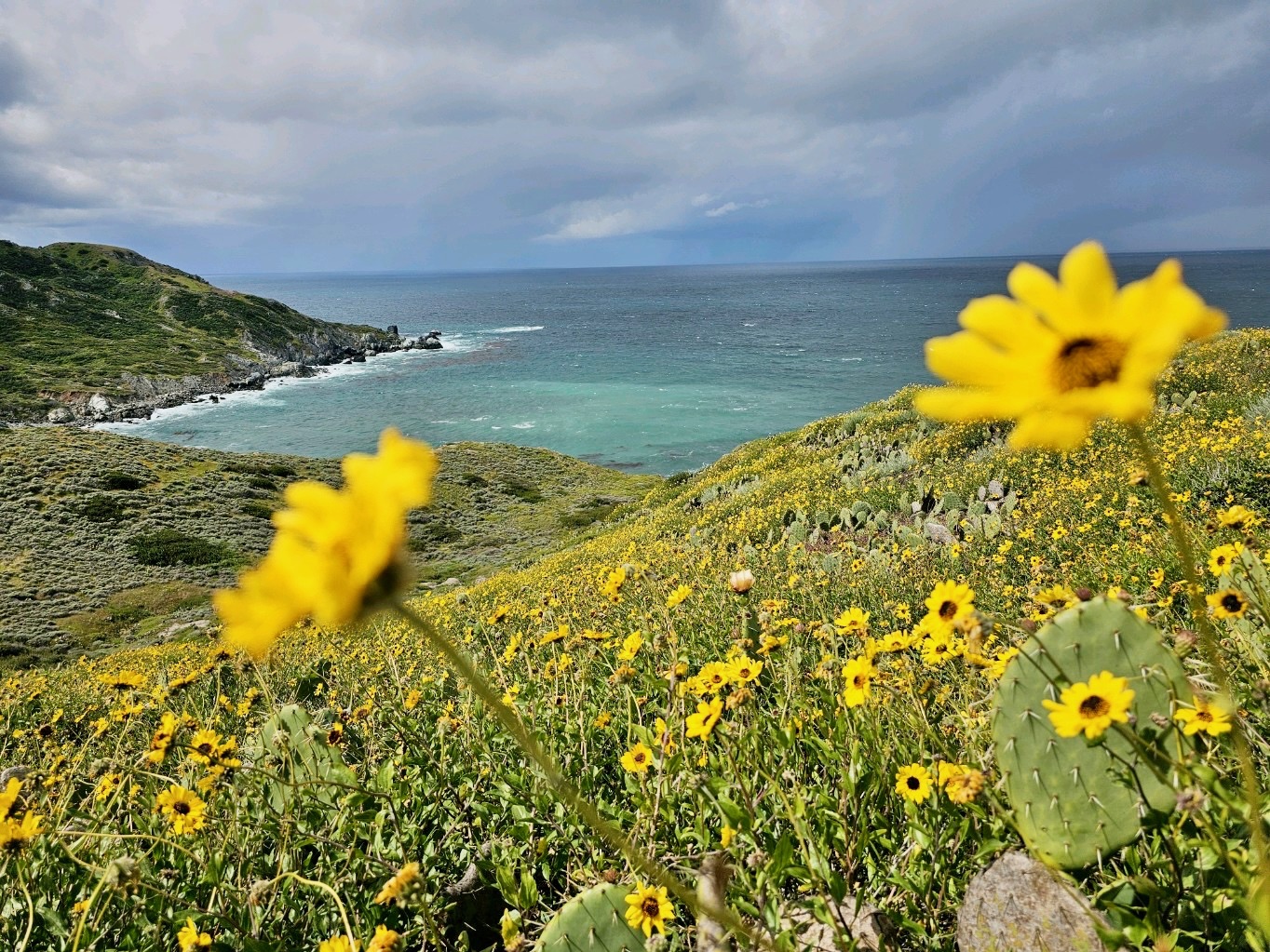The Parallel Paths
Embarking on the Trans-Catalina Trail (TCT) on Catalina Island provided me a perfect opportunity to explore the synergy between backpacking and the development of emotional intelligence. This 40-mile journey traverses stunning landscapes, challenging terrain, and offers ample opportunities for self-reflection and growth. Here is a few things how hiking the TCT mirrors the path towards emotional intelligence:
- Embracing Uncertainty: Hiking the TCT demands adaptability as the terrain transitions from rugged hillsides to serene coastal stretches. Similarly, developing emotional intelligence requires navigating the unpredictable terrain of human emotions. Just as backpackers adjust their plans in response to changing conditions, cultivating emotional intelligence involves adapting to the ebb and flow of feelings and relationships.
- Self-Reflection in Solitude: Along the TCT, hikers encounter moments of solitude amidst panoramic vistas and secluded beaches. These quiet interludes offer a sanctuary for introspection, allowing hikers to delve into their inner thoughts and emotions. Similarly, developing emotional intelligence often begins with introspective practices that encourage individuals to explore their inner landscape and cultivate self-awareness.
- Navigating Interpersonal Terrain: As hikers converge on campgrounds and shared trails, the TCT becomes a microcosm of interpersonal dynamics. Negotiating trail etiquette, sharing resources, and fostering camaraderie mirror the interpersonal skills essential for developing emotional intelligence. Effective communication and empathy foster connections among hikers, mirroring the importance of these skills in navigating relationships beyond the trail.
- Resilience in Adversity: The TCT presents hikers with physical and mental challenges, from steep ascents to blistered feet. Yet, overcoming these obstacles fosters resilience and fortitude. Similarly, developing emotional intelligence requires resilience in the face of life’s inevitable setbacks. Just as hikers press on through fatigue and discomfort, cultivating emotional intelligence involves weathering emotional storms with grace and determination.
- Appreciating Diversity: Catalina Island’s rich biodiversity and cultural heritage offer hikers a tapestry of experiences to appreciate. From encountering native wildlife (including buffalo) to learning about the island’s history, the TCT fosters an appreciation for diversity. Similarly, developing emotional intelligence involves embracing the diversity of human experiences and perspectives, fostering empathy, and celebrating the richness of our differences.
- Living in the Present: Hiking the TCT immerses hikers in the present moment, where the beauty of nature unfolds with each step. Just as backpackers savor the sights and sounds of the trail, developing emotional intelligence entails practicing mindfulness and being fully present in our interactions and experiences.
- The Journey of Self-Discovery: Ultimately, hiking the TCT is a journey of self-discovery, where hikers uncover their strengths, limitations, and innermost desires. Similarly, developing emotional intelligence is a journey inward, where individuals explore the depths of their emotions, beliefs, and values, forging a deeper connection with themselves and others.
Hiking the Trans-Catalina Trail serves as a metaphorical journey that parallels the quest for emotional intelligence. Through the challenges, triumphs, and moments of reflection along the trail, hikers gain invaluable insights into resilience, self-awareness, and connection – lessons that transcend the confines of the wilderness and resonate in the fabric of everyday life. So, whether you’re lacing up your hiking boots or embarking on a journey of self-discovery, embrace the adventure that lies ahead, both on the trail and within yourself.
Interested in learning more? Check out https://kenrmurdock.com/books/emotional-intelligence












